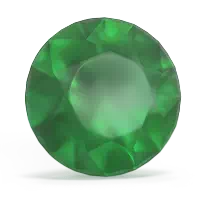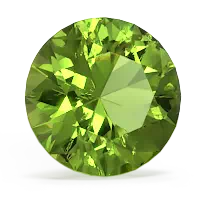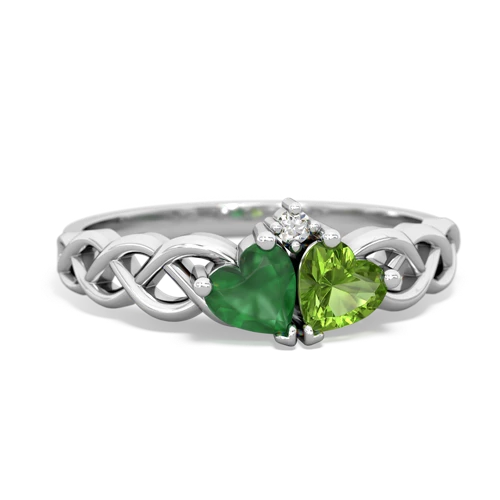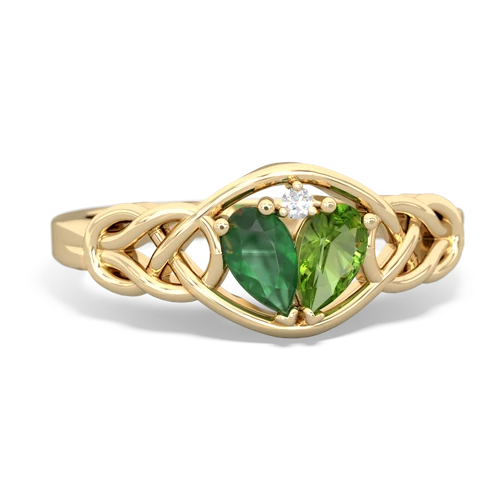

The celtic knot is an ancient symbol of the journey of life. With no beginning and no end, the knot represents the timeless nature of our spirits and the world we live in. A Emerald celtic knot combines these concepts with the spiritual attributes of the Emerald . The birthstone of May, an emerald ring symbolizes the eternally returning spring. The velvety green color of emerald is a perfect match for spring and summer fashions. Once considered more valuable than diamonds, a peridot ring is a must have. This "gem of the sun" is the birthstone of August and is a beautiful match for the lush green tapestry of late summer.




